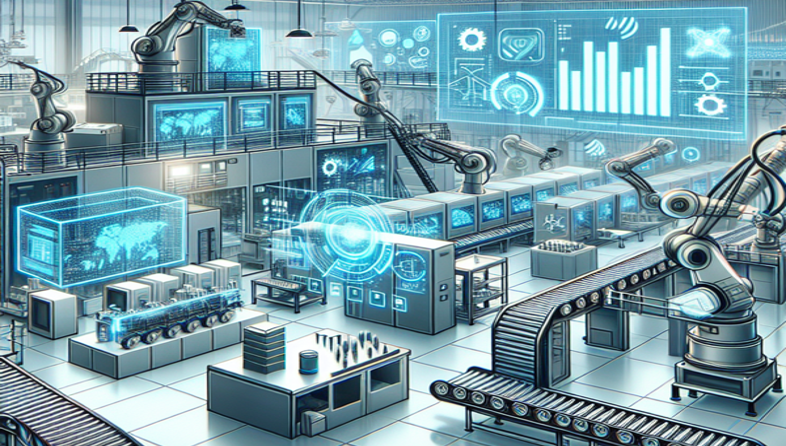In recent years, the integration of artificial intelligence in manufacturing has revolutionized the way industries operate. From automating tasks to enhancing productivity, AI is reshaping the manufacturing landscape. This transformation is not only improving efficiency but also driving innovation across the sector.

The Rise of AI in Manufacturing
The advent of artificial intelligence in manufacturing marks a new era for factories and production lines. AI technologies, such as machine learning and robotics, are enabling manufacturers to optimize processes, reduce waste, and increase precision. The implementation of AI is also fostering a safer working environment by allowing machines to perform hazardous tasks traditionally handled by humans.
Key Benefits of AI in Manufacturing
Artificial intelligence offers numerous advantages in the manufacturing sector, including:
- Improved Efficiency: AI systems can analyze vast amounts of data to identify inefficiencies and suggest improvements, leading to streamlined operations.
- Predictive Maintenance: AI technology helps in predicting equipment failures before they occur, reducing downtime and maintenance costs.
- Quality Control: AI-powered systems enhance quality control by detecting defects and inconsistencies in real-time.
AI Applications in Manufacturing
AI applications in manufacturing are diverse and continue to grow. Some key applications include:
Robotic Automation
Robots equipped with AI capabilities are increasingly used in manufacturing to perform repetitive and complex tasks. These robots can learn and adapt to new processes, improving accuracy and efficiency.
Supply Chain Optimization
AI helps in optimizing supply chains by analyzing data to forecast demand, manage inventory, and streamline logistics. This leads to reduced costs and improved customer satisfaction.
Product Design and Development
AI is also used in product design and development, allowing manufacturers to create innovative products tailored to customer needs quickly.
Challenges of Implementing AI in Manufacturing
While the benefits are significant, integrating artificial intelligence in manufacturing is not without challenges. These include:
- High Initial Costs: Implementing AI technologies can be costly, requiring significant investment in infrastructure and training.
- Data Security: As AI systems rely on vast amounts of data, ensuring data security and privacy is crucial.
- Skill Gap: There is a growing demand for skilled workers who can develop, implement, and maintain AI systems.
The Future of AI in Manufacturing
Looking ahead, the role of artificial intelligence in manufacturing is set to expand even further. As technology advances, we can expect AI to become more sophisticated and integral to manufacturing processes. The continued integration of AI will likely lead to more personalized products, reduced environmental impact, and a more agile manufacturing sector.
For those interested in further exploration, Intel provides an insightful overview of the role of AI in manufacturing, detailing the [impact of AI](https://www.intel.com/content/www/us/en/learn/ai-in-manufacturing.html) on various aspects of the industry.
Impacts on Workforce
The rise of artificial intelligence in manufacturing may reshape the workforce, with a shift towards more technical roles requiring advanced skills. However, this shift also presents opportunities for workforce development and upskilling, preparing employees for the demands of the future.
Conclusion
The integration of artificial intelligence in manufacturing is transforming the industry, offering numerous benefits such as increased efficiency, improved quality control, and enhanced innovation. While challenges exist, the future of AI in manufacturing is promising, with continued advancements paving the way for a more dynamic and competitive sector.
For a deeper understanding of how AI can enhance team productivity, explore [AI and QA](https://qualitech.ai/ai-and-qa-team-productivity/) on Qualitech’s website.

FAQs
1. How does AI improve manufacturing efficiency?
AI improves efficiency by automating repetitive tasks, optimizing production processes, and predicting maintenance needs, which reduces downtime and increases productivity.
2. What are the challenges manufacturers face with AI?
Challenges include high initial costs, data security concerns, and the need for skilled workers to manage AI technologies.
3. What is the future of AI in manufacturing?
The future of AI in manufacturing includes more advanced AI applications, personalized products, and a focus on sustainability and environmental impact.
This article contains affiliate links. We may earn a commission at no extra cost to you.

